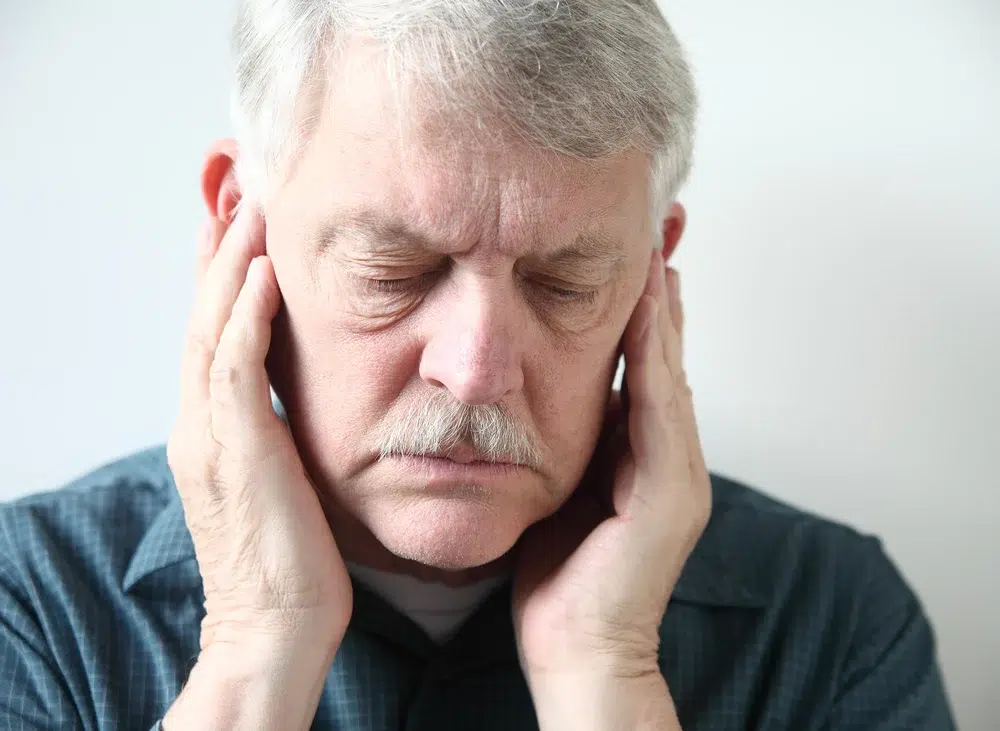Do you experience an annoying hissing, ringing, or high-pitched sound in your ears that nobody else seems to hear? Do your ears often feel like they are vibrating, throbbing, or full? Do the sounds or sensations come and go without warning? Are they painful? If so, and you are over the age of 40, you may have age-related tinnitus.
Anyone can experience tinnitus, but it is more common in older adults. The risk of developing age-related tinnitus or hearing disorders significantly increases after the age of 40. Men are more prone to the condition than women. Anything that disturbs the inner mechanisms in the ears can affect your equilibrium, hearing, or both. With tinnitus, the ability to hear and communicate efficiently and maintain balance diminishes much faster.
Tinnitus Types and Symptoms
Tinnitus affects everyone differently. Patients with circulatory or somatic muscle disorders often have objective tinnitus. The symptoms occur in the absence of external noise and can be heard by other nonaffected people nearby. Though this type of tinnitus is rare, it usually impacts older adults with head or neck trauma from certain diseases, injuries, or accidents and events.
The other type, subjective tinnitus, causes auditory or neurological sounds that only patients can hear. Risk factors include infection, sinusitis, congestion, and bone disorders. The symptoms tend to occur in low-noise environments. Over 80 percent of subjective tinnitus sufferers have additional ear disorders.
The symptoms of age-related tinnitus include:
- Sensations of fullness or pressure in the head, ears, or nose
- Ringing, high-pitched sounds, whooshing, roaring or pulsating in the ears
- Fatigue
- Cognitive issues
- Poor concentration or inability to focus
- Anxiety, depression, or stress
- Heightened sensitivity to low or loud sounds
As the body ages, the structures inside the ear change and, in some cases, deteriorate, affecting one or both ears simultaneously. It is important to note that tinnitus is one of the most noticeable and progressive symptoms of auditory system dysfunction that leads to hearing loss. It is also a common symptom of many other unrelated health and lifestyle issues.
Age-Related Tinnitus and Hearing Loss
The hearing process starts with sound waves entering the outer ear and ear canal before interacting with the eardrum. The eardrum turns the waves into vibrations and sends them through the middle ear (smallest bones in the ear) for amplification before entering the cochlea. Inside the cochlea is a special fluid that stimulates the cilia or tiny hair cells to create electrical signals that travel along the auditory nerve to the brain for processing. Hearing is an involuntary process. But for tinnitus sufferers, it is laborious or incapacitating.
Age-Related Tinnitus Triggers
 Most tinnitus patients experience communication difficulties that significantly decrease their happiness and overall quality of life. Common causes of tinnitus include the following ear, nose, and throat disorders.
Most tinnitus patients experience communication difficulties that significantly decrease their happiness and overall quality of life. Common causes of tinnitus include the following ear, nose, and throat disorders.
Head or Neck Trauma: Injuries that cause temporary or permanent damage to the brain, neck, or nerves and structures in the ear.
Ear Canal Blockage: Foreign objects, ear wax buildup, and swelling that blocks the ear canal can destabilize the pressure within the ear.
Bone and Joint Abnormalities: Tinnitus is especially common in families with certain hereditary traits. For example, osteosclerosis is one of many genetic conditions that impair bone health and function, that can trigger the onset of age-related tinnitus and hearing loss.
Eustachian Tube Dysfunction: Also known as ETD, this disorder develops when the tube in the inner ear swells or fails to maintain proper structure. ETD also causes pressure imbalances in the middle ear. The rigid-like structure of the fibrocartilaginous canal connects the middle ear to the sinus and nasal airways deep inside of the nose to the upper throat. Many people with Eustachian tube disorders also experience pain.
Decreased Immunity: Aging diminishes the immune system’s defenses against infections, inflammation, pathogens, germs, bacteria, and other environmental triggers. It also impairs the healing process. Fluid and pus buildup can cause blockages and pressure imbalances that trigger other auditory system disorders.
Sinus and Congestion: Chronic congestion, sinusitis, or nasal tissue abnormalities, such as a deviated septum or nasal polyps contribute to the development of age-related tinnitus. Chronic sinus infections and untreated congestion often alter the Eustachian tube and prevent pressure equalization. Sinus infections or congestion that linger longer than two to three weeks requires proper treatment to prevent tinnitus and other hearing problems.
Diseases and Ailments: Older individuals with diabetes, blood, and vascular disorders, upper respiratory ailments, allergies, vertigo and balance, lupus, neurological, autoimmune, or other chronic disorders are prone to tinnitus, especially when there are delays in diagnosis and health management. Lesion and tumor development in the nose, brain, or neck can also disrupt the hearing process.
Medication and Noise Exposure: The use of certain medications, store-bought drugs, and frequent or prolonged exposure to noisy environments and sounds contribute to the onset and severity of age-related tinnitus symptoms. Without proper treatment, the ability to hear gradually diminishes.
Tinnitus Treatment at the C/V ENT Surgical Group
For fast, safe, and comprehensive tinnitus care, call the C/V ENT Surgical Group. Our ENT specialists are committed to providing the least invasive ear, nose, and throat treatment options for patients with age-related tinnitus that restores their hearing and overall quality of life.

